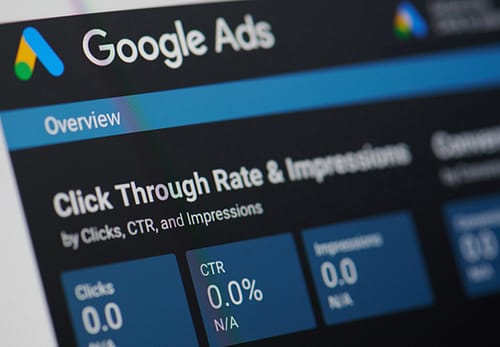Introduction
In the ever-changing legal industry, digital marketing has become essential for law firms. As we look ahead to 2024, it’s clear that having a strong online presence is crucial. More and more clients are using the internet to search for and hire legal services. Out of all the digital marketing strategies available, Pay-Per-Click Marketing stands out as a highly effective option for law firms looking to expand their reach and attract new clients.
Pay-Per-Click Marketing, or PPC, is an online advertising model where law firms pay a fee each time someone clicks on their ad. This allows law firms to essentially purchase visits to their website, rather than relying solely on organic visits through SEO. Here’s a quick overview of how PPC works for law firms:
- Google Ads: The main platform for running PPC campaigns, offering wide reach and precise targeting.
- Cost-Effectiveness: By carefully managing their budget and bids, law firms can control costs and achieve a high return on investment.
- Immediate Visibility: Ads can appear at the top of search engine results pages, giving instant exposure to potential clients.
- Measurable Impact: Through detailed analytics, law firms can track every click and conversion, gaining valuable insights into the performance of their campaigns.
Throughout this guide, we will explore these aspects in depth, providing tailored strategies specifically designed for law firms to make the most of PPC marketing in 2024.
Chapter 1: Understanding Pay-Per-Click Marketing for Law Firms
Pay-Per-Click (PPC) marketing is a crucial part of online advertising, especially for competitive industries like legal services. In simple terms, PPC is a model where law firms pay a fee every time someone clicks on their ads. Instead of relying solely on organic traffic, PPC allows businesses to directly purchase visits to their websites.
What is Pay-Per-Click Marketing and How Does it Work?
PPC marketing involves placing ads on platforms where potential clients are likely to come across them, such as search engines or social media sites. Here’s how it works:
- Keyword Research: Law firms identify relevant keywords that potential clients might use when searching for legal services.
- Ad Creation: Using these keywords, firms create compelling ads that highlight their expertise and offerings.
- Ad Placement: The ads are then displayed on search engine results pages or social media feeds.
- User Engagement: When someone searches for a keyword related to a law firm’s services, they see the corresponding ad alongside the regular search results. If the ad captures their interest, they can click on it to learn more.
- Cost Calculation: The law firm is charged a certain amount (known as the cost per click or CPC) only when someone actually clicks on their ad.
Key components of PPC include:
- Bidding: Law firms bid on keywords they believe potential clients will use when searching for legal services.
- Ad Placement: Winning bids secure prominent ad placement, ideally leading to more visibility and clicks.
- Costs: The cost per click (CPC) can vary greatly depending on keyword competition and market demand.
The Role of Google Ads in PPC Advertising
Google Ads is the most widely used PPC advertising system globally. It enables law firms to display their ads on Google’s search engine and other platforms owned by Google.
Google Ads works on a pay-per-click model, meaning businesses only pay when someone clicks on their ads. For law firms looking to target specific types of cases or clients, Google Ads offers tools to create highly focused campaigns that show their ads directly to people searching for legal help.
Types of Online Advertising Channels for Law Firms
While Google Ads is popular, there are other online channels available for law firms to explore:
- Search Advertising: These are text ads displayed among search engine results when someone looks for relevant legal services.
- Display Advertising: Eye-catching banner ads shown across millions of websites within the Google Display Network.
- Social Media Advertising: Platforms like Facebook and LinkedIn allow targeted ads based on user profiles and behavior.
- Remarketing: This involves targeting individuals who have previously visited your website but did not convert into clients.
- Video Advertising: Utilizing platforms like YouTube to run video ads can be powerful, especially for engaging potential clients with compelling content.
For law firms navigating through the complexities of digital marketing, understanding these channels and how they fit into a broader marketing strategy is crucial. Each channel offers unique benefits and should be considered in relation to the firm’s specific goals and target audience.
Chapter 2: Key Advantages of Using PPC for Law Firm Promotion
In today’s digital world, law firms need to use every available method to reach potential clients. Pay-per-click (PPC) marketing is now an essential part of any effective digital marketing strategy. In this chapter, we’ll look at the main benefits of using PPC to promote your law firm.
1. Leveraging PPC for Law Firm Growth
PPC allows law firms to show their services to the people who need them the most, exactly when they need them. By bidding on keywords related to their areas of expertise and creating specific ads, law firms can send motivated individuals to custom-made landing pages that explain their services and knowledge. Unlike other types of advertising, PPC only charges you when someone actually clicks on your ad. This makes it a cost-effective way to generate valuable leads.
2. Hyper-Focused Targeting Options in PPC Campaigns
One of the biggest advantages of PPC is its ability to target specific audiences. This targeting can be done in several ways:
- Geographic targeting: Ads can be shown to people within a certain distance from your firm.
- Demographic targeting: PPC campaigns can be tailored to reach individuals based on their age, gender, and other factors.
- Device targeting: Your ads can appear on particular types of devices, like mobile phones or desktop computers.
By using these options, you can make sure that your advertising budget is being used to reach potential clients who are most likely to require your services.
3. Ensuring Cost-Efficiency with Proper Budgeting and CPC Optimisation
With PPC, you have full control over how much you want to spend on each campaign – there’s no minimum requirement. You decide the maximum amount you’re willing to pay for each click (known as your cost-per-click (CPC)), which gives you the freedom to adjust your budget based on performance and desired results. Google Ads also offers tools to predict how your ad will perform and estimate the costs for different keywords and bids. This helps you make informed decisions when planning your budget.
Incorporating PPC into your law firm’s marketing strategy offers many advantages.
Chapter 3: Overcoming Challenges in Implementing Successful Law Firm PPC Strategies
Implementing successful pay-per-click (PPC) strategies for law firms comes with its challenges. Two of the most significant hurdles are measuring ROI and understanding the importance of buyer personas for targeted advertisements.
Measuring ROI and Attribution in Law Firm PPC Campaigns
When it comes to PPC campaigns, one of the biggest challenges is quantifying the return on investment (ROI). While it’s easy to track clicks, impressions, or even conversions, attributing these metrics to specific ads can prove tricky.
Essentially, ROI is calculated as the revenue generated by a campaign minus the cost of that campaign, divided by the cost of the campaign itself. However, for law firms where a client’s lifetime value can be quite high, this calculation becomes more complex.
For instance, if an ad leads to a consultation that doesn’t immediately result in a case but later turns into a lucrative client relationship, how should that be attributed? The answer lies in setting up proper tracking mechanisms and understanding the customer journey from click to conversion.
Understanding the Importance of Buyer Personas for Targeted Advertisements
Another challenge lies in creating and utilising buyer personas effectively. Buyer personas represent your ideal clients – their needs, behaviours and pain points. They guide not only your PPC strategies but also your overall marketing efforts.
While it may seem straightforward to create these personas based on assumptions or stereotypes, effective buyer personas are built from real data. This can include demographic information, website analytics, survey results, and client interviews.
Specifically for PPC campaigns, these personas help law firms target their ads more effectively by:
- Selecting appropriate keywords that these personas would likely use in search queries
- Crafting compelling ad copy that speaks directly to their needs
- Choosing suitable landing pages that offer solutions to their problems
By overcoming these challenges – accurately measuring ROI and genuinely understanding your buyer personas – law firms can craft more effective and efficient PPC campaigns. These strategies not only help in navigating the complexities of PPC advertising but also lay a solid foundation for future digital marketing success.
Chapter 4: Best Practices for Running Effective PPC Campaigns for Your Law Firm
Conducting In-Depth Keyword Research for Law Firm PPC Success
The foundation of any strong pay-per-click marketing campaign lies in thorough keyword research. For attorneys aiming to excel online, finding the right keywords is not just about being discovered; it’s about being discovered by the right potential clients when they need legal help.
Here are some tips for conducting effective keyword research:
- Analyse Search Intent: Determine what prospective clients are looking for—whether it’s information on legal processes or immediate representation—and choose your keywords accordingly.
- Utilise Keyword Planning Tools: Make use of platforms like Google Keyword Planner to find terms that have high search volumes and manageable competition within your specific area of law.
- Consider Long-Tail Keywords: Include longer, more specific phrases that may not have as many searches but often result in higher conversion rates due to their specificity.
Crafting Compelling Ad Copy that Stands Out in a Competitive Landscape
Once you’ve identified your best keywords, the next step is to communicate your message in a way that resonates with your audience. In a highly competitive environment, it’s crucial to create ad copy that grabs attention.
Here are some tips for creating compelling ad copy:
- Focus on Unique Selling Propositions (USPs): Highlight what makes your law firm unique—whether it’s years of experience, specialised services, or successful case outcomes.
- Emphasise Immediate Benefits: Clearly explain how you can assist potential clients. Use action-oriented language that motivates them to click and take action.
- A/B Test Your Ads: Experiment with different headlines and descriptions to determine which combinations generate the highest click-through rates (CTR) and conversions.
By following these strategies, law firms can develop PPC campaigns that are set up for success. The combination of well-researched keywords and persuasive ad copy leads to improved visibility and client acquisition.
Chapter 5: Advanced Strategies to Optimize Your Law Firm’s PPC Performance
For any law firm aiming to excel in PPC marketing, a solid understanding of advanced strategies – like the use of ad extensions, quality score Optimisation, and ROI-focused bidding – is crucial.
Ad Extensions and Other Ad Format Enhancements
Ad extensions provide additional information about your law firm, such as address, phone number, or additional website links. Using ad extensions improves the visibility of your ads, leading to better Click-Through Rates (CTR) and Quality Score.
Consider the following types of ad extensions:
- Callout Extensions: Highlight specific services or unique selling points.
- Location Extensions: Show your law firm’s location to attract local clients.
- Sitelink Extensions: Direct users to different pages on your website.
Remember that Google considers your Quality Score when determining ad rank and cost per click (CPC). Hence, improving Quality Score can lead to more cost-efficient campaigns.
Conversion Tracking and ROI-Focused Bidding
A successful PPC campaign isn’t just about driving clicks; it’s about driving conversions.
Conversion tracking provides insights into how your audience interacts with your ads. This data helps identify which keywords and ads are most effective at driving conversions – be it form submissions, phone calls, or new client consultations.
Meanwhile, ROI-focused bidding strategies help maximize campaign results within budget constraints. By focusing on bidding keywords that generate a high return on investment (ROI), law firms can ensure their advertising budget is spent efficiently.
Consider these bidding strategies:
- Manual CPC Bidding: Allows control over individual keyword bids.
- Automated Bidding: Google automatically adjusts bids for optimal performance.
- Enhanced CPC: Google adjusts bids based on the likelihood of conversion.
To prevent wasting budget on irrelevant clicks, consider implementing negative keywords. These are terms related to your keywords but are not relevant to your law firm’s services.
By using these advanced strategies, law firms can optimize their PPC performance, ensuring their digital marketing efforts yield significant results.
Chapter 6: Measuring Success and Scaling Up with Pay-Per-Click Advertising for Law Firms
Understanding PPC for Law Firms involves not just the setup and execution of campaigns, but also the rigorous analysis of their performance. The ultimate aim is to ensure that these campaigns contribute meaningfully to the larger business objectives of a law firm. Achieving long-term success requires a continuous process of assessment, refinement, and scaling.
Aligning PPC Goals with Business Objectives for Long-Term Success
The primary step is to establish clear goals for PPC campaigns that resonate with the strategic objectives of the law firm. Whether it’s increasing client inquiries, brand exposure, or direct conversions, each campaign should serve a distinct role in the overarching business plan.
Setting Specific Objectives
Identify what you want your PPC campaign to achieve — more consultations booked, higher traffic to practice area pages, or more downloads of legal guides.
Periodic Review
Regularly assess these goals against performance data to ensure they remain relevant and are being met effectively.
Key Metrics for Evaluating the Effectiveness of Your Law Firm’s PPC Campaigns
To accurately gauge the impact of your PPC efforts, it’s critical to track specific metrics that reflect campaign performance:
- Click-through Rate (CTR): Provides insights into how compelling your ad is to your target audience.
- Cost Per Click (CPC): Helps manage expenditure by showing the actual price paid for each click on your ads.
- Conversion Rate: Indicates the percentage of clicks that resulted in a desired action, such as a form submission or call to your law firm.
- Quality Score: A diagnostic tool that gives you an idea of the quality of your ads, keywords, and landing pages.
- Return on Ad Spend (ROAS): Measures profitability by comparing revenue generated from ads relative to cost.
By regularly monitoring these key performance indicators (KPIs), law firms can make informed decisions about where to allocate their budget and when to scale their campaigns for optimal results.
Through meticulous tracking and analysis, firms can discover patterns and signals within their data. This approach not only helps refine current campaigns but also informs future strategies. As you dive deeper into measuring success and identifying areas for improvement in PPC campaigns, a holistic view emerges—one where each decision is data-driven and closely tied to both immediate and long-term aspirations.
The Future of Pay-Per-Click in the Legal Industry – Staying Ahead of the Curve
As law firms navigate the complex landscape of digital advertising, they must remain agile and forward-thinking to stay ahead of the curve. A prominent trend set to shape the future of PPC in the legal industry is the growing use of automation and artificial intelligence (AI).
The Power of Automation in PPC Campaigns
Automation in PPC campaigns can streamline various tasks such as bid management, ad creation, and performance reporting. These automated processes can yield significant time savings for law firms, enabling them to focus more on their core legal services.
- Embrace automated bidding strategies like Google Ads’ Smart Bidding. This AI-powered tool adjusts bids in real time, aiming to achieve the most conversions within your set budget.
Leveraging Artificial Intelligence for Targeted Marketing
The role of AI extends beyond automation. Advanced machine learning algorithms can analyse vast amounts of data to glean insights about your target audience. These insights can then be used to refine your PPC strategies for maximum impact.
Predictive analytics tools can forecast future trends based on historical data, helping law firms anticipate changes in consumer behaviour or market conditions.
By integrating such AI-driven technologies into their PPC strategies, law firms can make data-driven decisions, improve ad performance and ultimately maximise ROI.
In this dynamic digital age, staying abreast of technological advancements like automation and AI is crucial for law firms wishing to harness the full potential of PPC marketing.
Conclusion
Using pay-per-click marketing is crucial for the growth of law firms in 2024. PPC offers the ability to measure results, control costs, and gather valuable data for future campaigns. It’s important to stay updated with advancements in technology like AI and automation to remain competitive in the digital world. By continuously learning and applying PPC strategies, your law firm can achieve long-term visibility, reach your target audience effectively, and experience significant growth in your legal practice.















